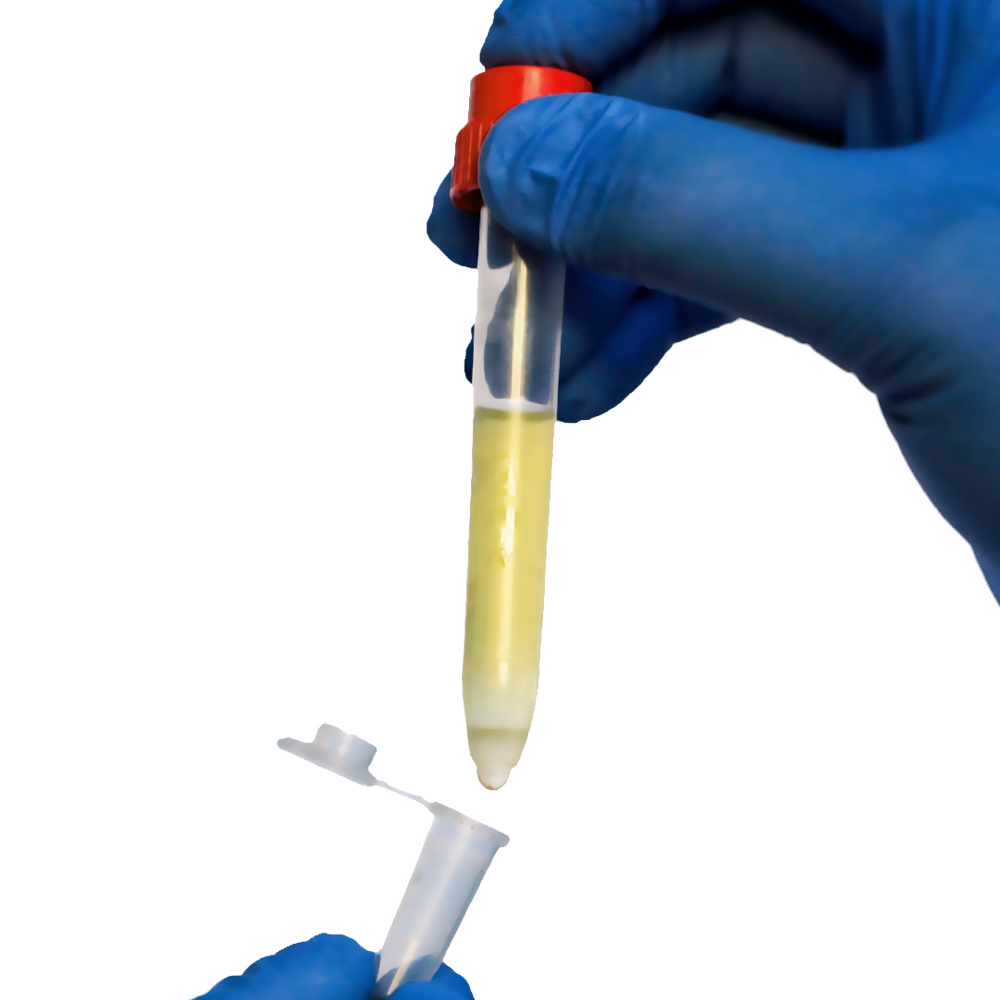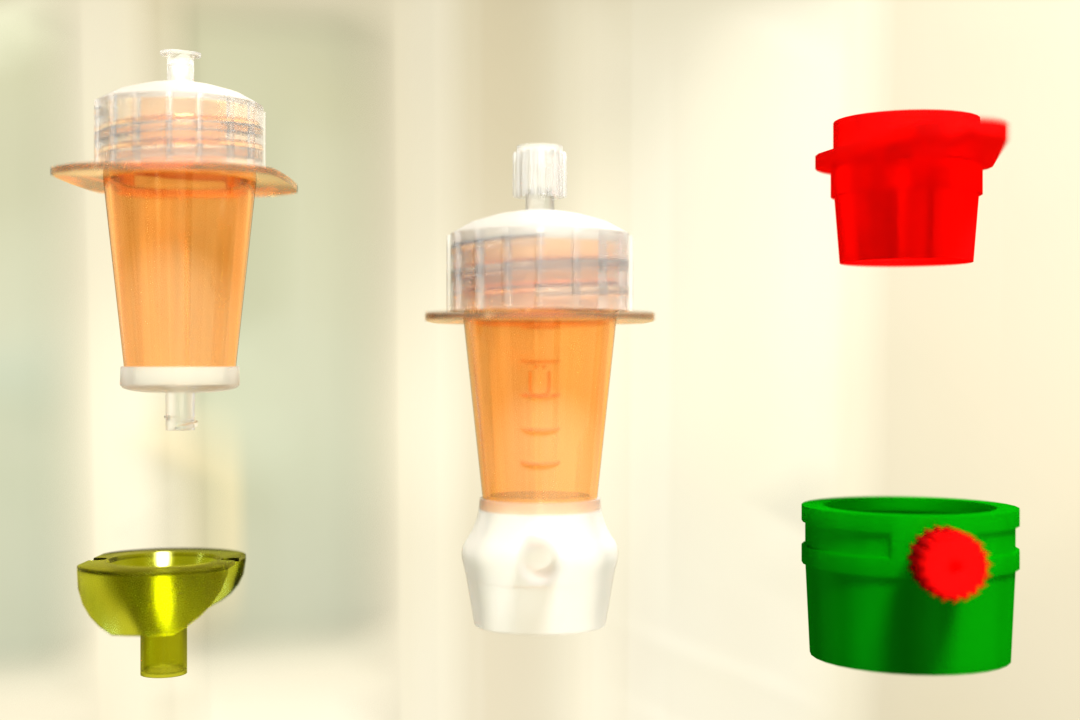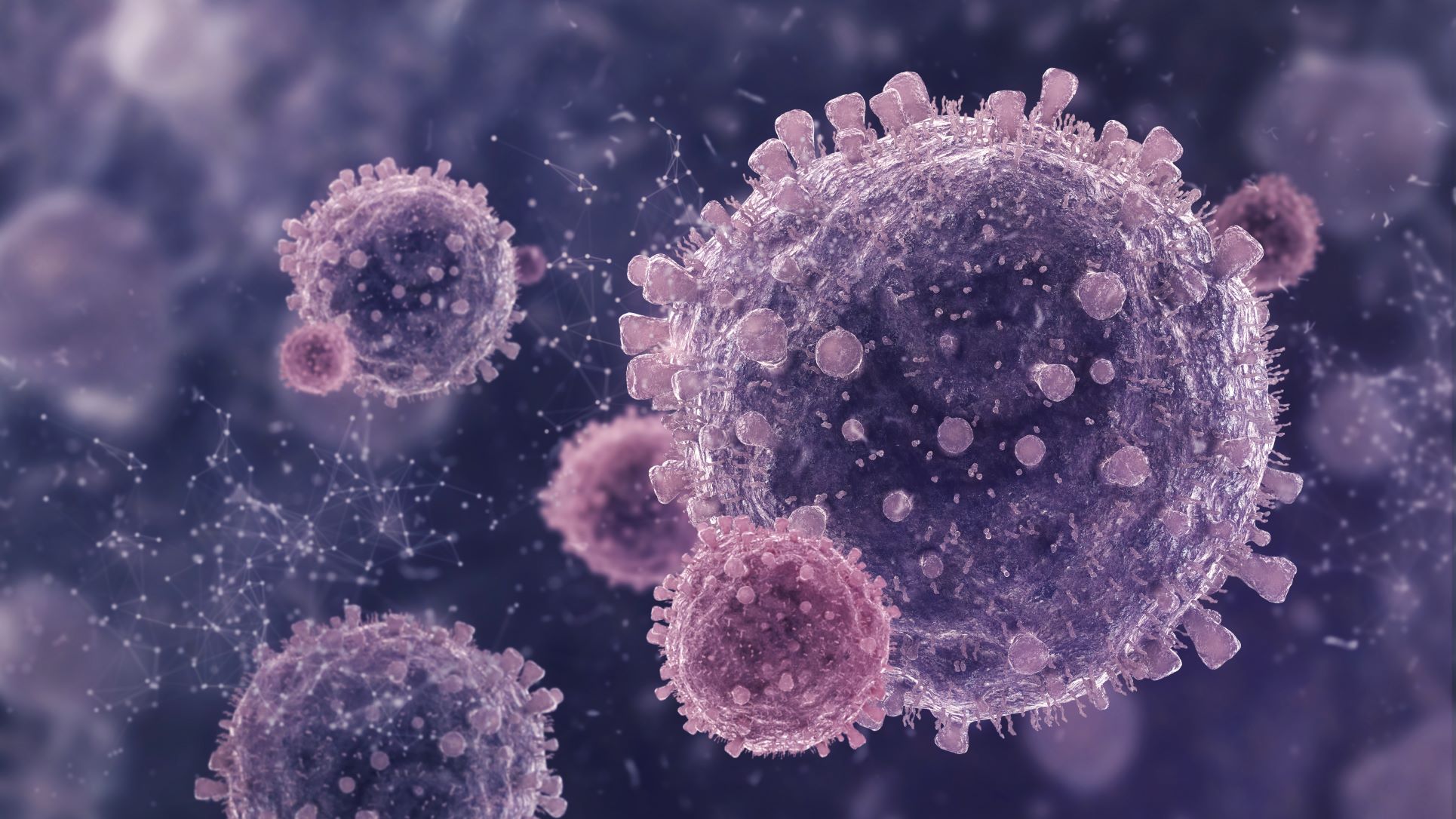Introduction
Here we are presenting a new approach to colon carcinoma circulating tumor cell (CTC) screening using pluriBead® carrying a tumor-associated EpCAM antibody.
This method is based on a non-magnetic cell separation technology. It does not require any sample pre-treatment. EpCAM-pluriBead® can be added directly to a whole blood sample. The method is also suitable for single cell isolation from different biological fluids. Moreover, its sensitivity can be additionally increased by raising the sample volume. The bound EpCAM-positive colon carcinoma cells can be easily involved in further molecular-genetic experiments that aim to detect of their mutation status. In case of colon carcinoma, K-ras mutation status is a predictive tool of response anticancer therapy. Thus, the new method can be considered as a fast and effective instrument for early cancer diagnostics.
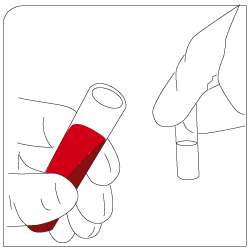 |
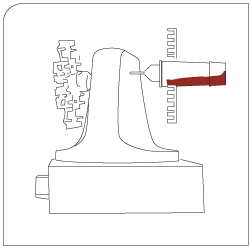 |
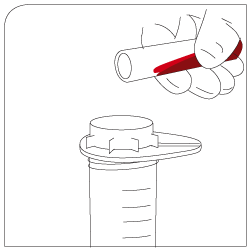 |
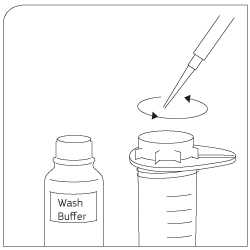 |
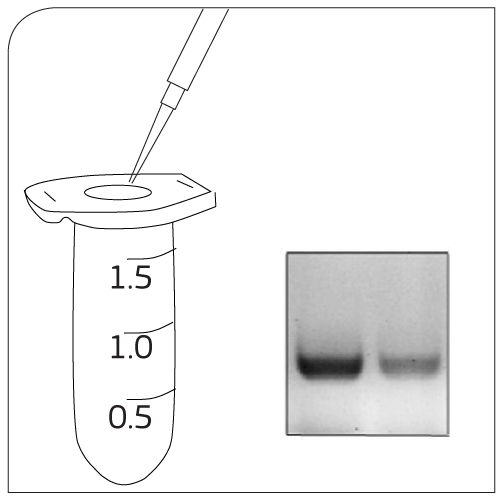 |
| Labeling
Add EpCAM-pluriBead® to your sample |
Mixing
30 minutes of gentle incubation (recommended with pluriPlix®). |
Isolation
Captured target cells are separated via appropriate sieves. |
Washing
Use wash buffer to clean sieve. Lyse cells with Trizol®. |
CTC Processing
Approaches for the study of cancer cells:
– RNA/DNA isolation
– Cell culture experiments |
Results of Tumor Study
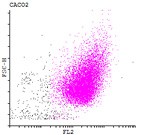
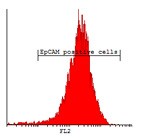 Fig.
Fig. 1a and 1b: Flow cytometric analysis of Caco-2 cells, staining with anti-EpCAM-PE.
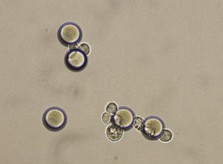
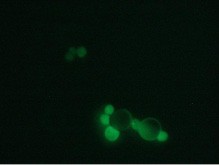
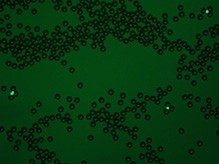 Fig 2a: Colon carcinoma Caco-2 cells captured by EpCAM-pluriBead®.
Fig 2a: Colon carcinoma Caco-2 cells captured by EpCAM-pluriBead®.
Fig 2b: Captured colon carcinoma Caco-2 cells, staining with calcein.
Fig 2c: Captured colon carcinoma Caco-2 cells spiked in 30 ml whole blood with 0.5 million EpCAM-pluriBead®
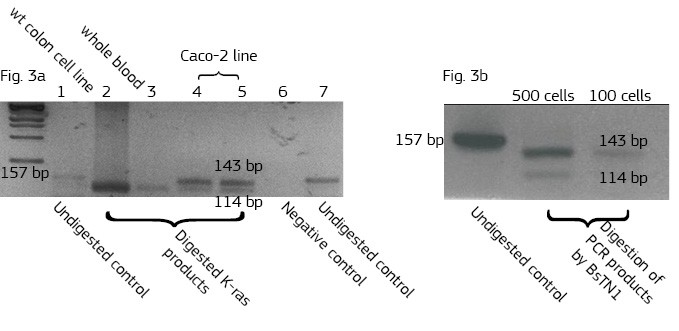 Fig.
Fig. 3: Screening of colon carcinoma lines for the presence of mutation in 12h codone of K-ras oncogene by PCR using primers that introduce BsTN1 restriction enzyme sites into PCR products.
 Fig.
Fig. 4a: Sensitivity of PCR method for the detection of K-ras protoncogene in known number of spiking Caco-2 cells. Fig. 4b: Products of RT-PCR for EpCAM and CK 20 mRNA isolated from the Caco-2 cells, captured by EpCAM-pluriBead® (as a negative control, mRNA from whole blood was used).
Conclusions and perspectives
Here we developed a new approach for the detection of circulating colon tumor cells in blood using EpCAM-pluriBead®. Thus, the captured cells are suitable for further molecular-genetic screening of specific markers, connecting with tumor formation. The developed “in situ immunobeads pcr” method does not require preliminary RNA/DNA isolation and can effectively save the time of analysis. In conclusion, further aim of this work is to increase the sensitivity of method raising the sample volume, varying the cell tumor lines and/or antibody specificity.
Please feel free to let us know if you have any questions (Contact Us). We would be happy to offer our help with your research.
Reference:
Nature
Science Direct
NCBI
 English
English French
French
 German
German
 Spanish
Spanish
 Belgium
Belgium
 Italian
Italian Brazil
Brazil Chinese Mandarin
Chinese Mandarin
